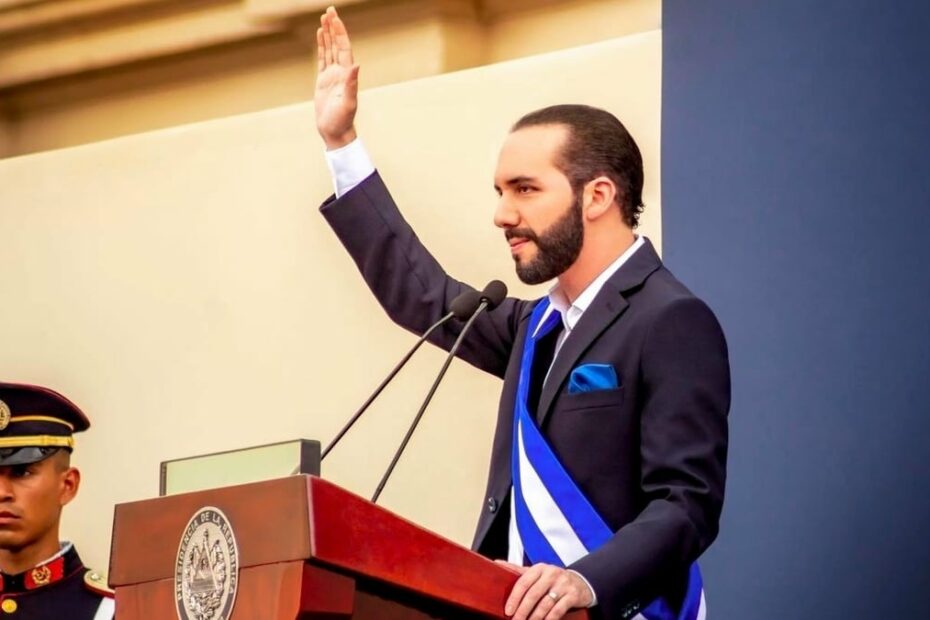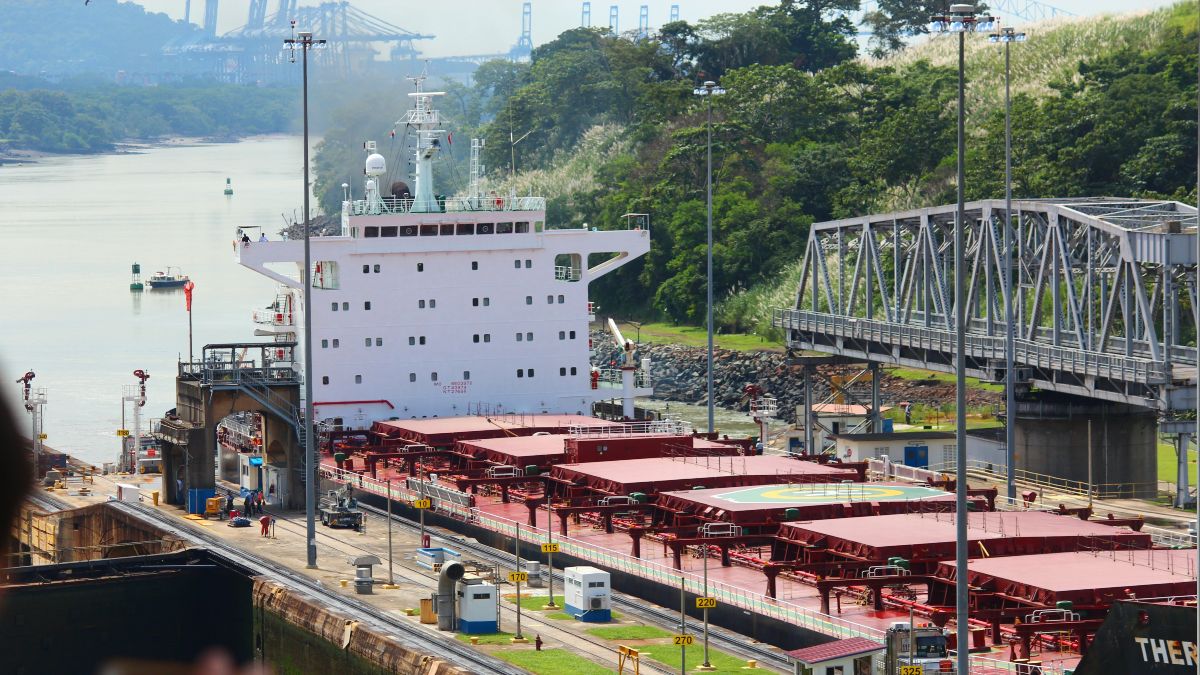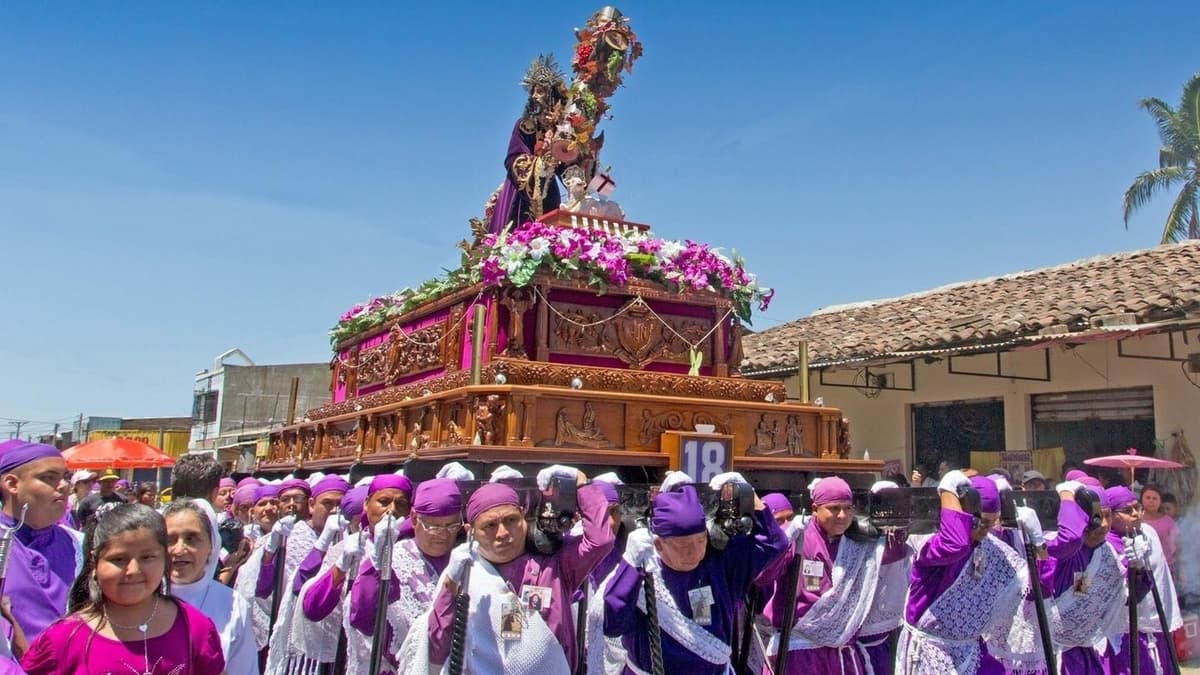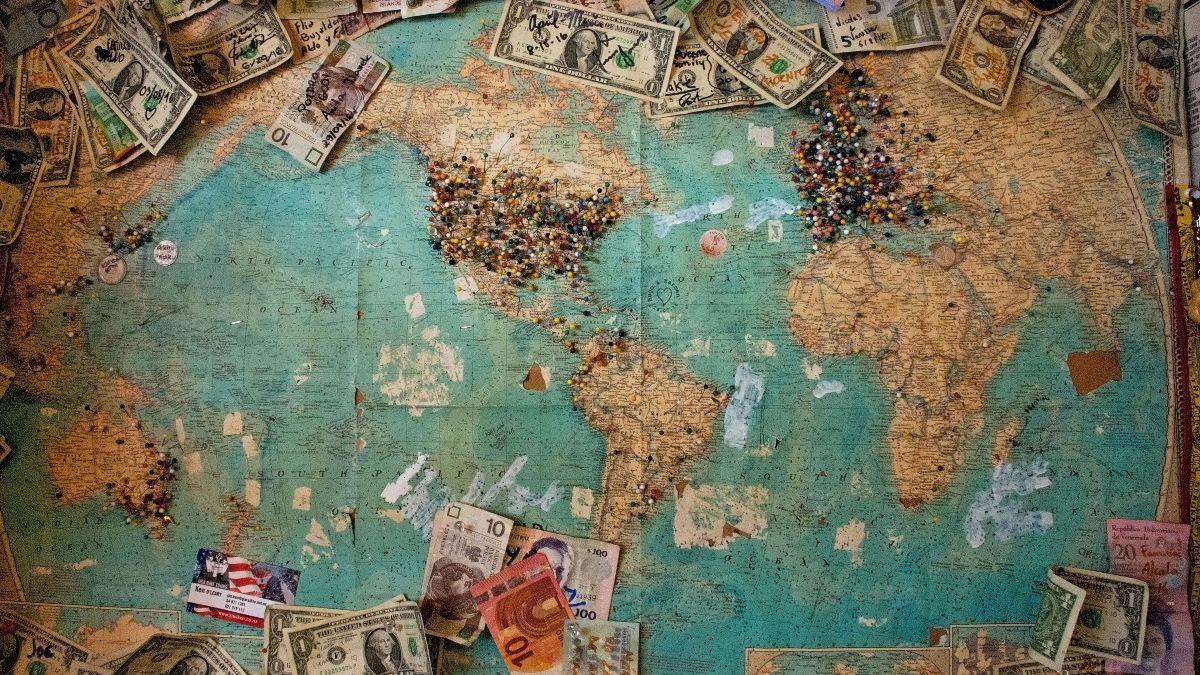President Nayib Bukele may be correct about the world watching El Salvador today, as Bitcoin becomes a legal currency. But away from that, it’s also watching something else happen in his country.
Speaking on Twitter yesterday (as he’s prone to do), President Nayib Bukele of El Salvador said that today – September 7 – “all eyes of the world will be on El Salvador“. He tweeted in English, for maximum international effect, and he’s not wrong.
After all, today’s a special day in El Salvador. Today is Bitcoin Day, the day El Salvador becomes the first country in the world to adopt the cryptocurrency as a legal tender. This is no small thing, and it’s the main reason why the world is watching El Salvador.
Tomorrow, for the first time in history, all the eyes of the world will be on El Salvador.#Bitcoin did this.#BTC🌎🇸🇻 https://t.co/h3zO2COYmb
— Nayib Bukele 🇸🇻 (@nayibbukele) September 6, 2021
I know enough about crypto to be at the lower end of ignorant, I suppose.
I wish I was more schooled up on the whole thing. But even I can see some of the positives behind legalizing Bitcoin. First, you have the financial reasons cited by Bukele (the main ones being making remittances less expensive and giving the unbanked access to financial services on their phones). There’s no doubt these reasons will help many people.
Imagery and publicity are the other positives to Bitcoin Day, and the cynical side of me suspects they’re the prime reasons behind the initiative. This is why we’re seeing Bukele tweeting so much in English right now, something quite rare for him.
He’s talking to the outside world, projecting El Salvador as a cool, hip, forward-thinking country. He wants Bitcoin to attract crypto-peeps and businesses from around the world – indeed, if you invest three Bitcoin into El Salvador, you can get residency.
All this is fine and dandy. I don’t blame him for publicizing the move. And, speaking from the lower end of ignorant, I don’t think making Bitcoin legal currency is a bad thing. People should be free to use (or not use) Bitcoin in any way they want. Businesses should be free to accept (or not accept) Bitcoin – or any other crypto – whenever they want. Whatever floats your boat.
Bottom line is, Bitcoin Day looks good to people outside El Salvador, and Nayib Bukele looks like a switched-on guy. That’s the point.
Just walked into a McDonald’s in San Salvador to see if I could pay for my breakfast with bitcoin, tbh fully expecting to be told no.
But low and behold, they printed a ticket with QR that took me to a webpage with Lightning invoice, and now I’m enjoying my desayuno traditional! pic.twitter.com/NYCkMNbv7U
— Aaron van Wirdum (@AaronvanW) September 7, 2021
I also see the negatives.
Without going into them all in detail here (remember, I’m at the lower end of ignorant about this stuff), negatives include the not inconsequential fact that many people have little or no access to decent internet in El Salvador.
We can talk about the unbanked having access to financial services through their phones, but that might not mean so much when you know that El Salvador is one of the least-internet-connected countries in Latin America, according to an Inter-American Development Bank study last year.
In rural El Salvador, says the study, only one-in-ten people have internet access. For the most part, the nine-in-ten without internet access will be the same people without access to banking, meaning Bitcoin Day will be utterly meaningless to them. They don’t have bank accounts and they can’t access funds through their online Bitcoin wallets either. Cash will remain king for these people.
This brings me back to the notion that the whole thing is more a publicity exercise for the outside world, rather than a move to truly help the poor.
Factbox: Pros and cons for El Salvador, the first bitcoin nation https://t.co/5I4vOFAZL2 pic.twitter.com/S4bK9q93he
— Reuters (@Reuters) September 7, 2021
And then there’s the question of volatility.
No-one can deny Bitcoin is volatile. Yesterday evening (9:00 PM, Monday, September 6 2021), for example Bitcoin was at around $53,000. This morning, Bitcoin Day (9:15 AM, Tuesday, September 7 2021), it was at around $46,000. This drop prompted El Salvador to buy 150 Bitcoins and earned another tweet (again, in English) from President Bukele, talking about “buying the dip“.
All this is fine if you’re wealthy enough to invest in Bitcoin and you understand its value will rise and fall dramatically. If you want to play the long game, go for it. The way Bitcoin’s grown in value over the years, you’ll probably win.
But it’s not so fine if you’re a taxi driver or a pupusa maker. You don’t want to worry about your earnings dropping in value because you don’t have the time or the money to play with Bitcoin. Fluctuations are fine for those who can afford it. They’re not fine if it’s your day-to-day earnings we’re talking about, and you end up stressing out about how much they’re worth on a daily or hourly basis.
Buying the dip 😉
150 new coins added.#BitcoinDay #BTC🇸🇻
— Nayib Bukele 🇸🇻 (@nayibbukele) September 7, 2021
This is why the whole thing is unpopular with most Salvadorans.
What, for example, if the company you work for decides to pay your salary in Bitcoin? Although the government says you have a choice in the matter, what if you don’t? What if your salary loses half its value in the time it takes for you to convert it into cash? These are real concerns for real people doing real jobs and living real lives. Real people, not your crypto-bros on social media playing with this like it’s a big game.
Again, personally speaking, I’m for the legalization of Bitcoin. I have zero issues with it. But I also see where this whole thing is a publicity stunt for the outside world, and a deliberate distraction from what’s happening internally.
Because, while, in Bukele’s words, “The eyes of the world are on El Salvador“, they’re also watching more than just Bitcoin.
President Bukele wants the world to watch the progress of a dynamic new El Salvador embracing Bitcoin and the idea of cryptocurrencies. That way, it might not see the dismantling of democracy happening in his country, under his guidance.
Unfortunately, though, the world is seeing both.
If I was Salvadoran, I would have voted for Bukele in 2019, no question. I admit it. He’s smart, and he’s done a lot of good since he’s been in power, which would have vindicated my vote. Also, it has to be said, the alternatives to Bukele in the 2019 election were more of the same old disappointments that have blighted Salvadoran politics for years. Salvadorans, like many Central Americans, have been poorly-served by their politicians since time immemorial, so Bukele would have been a no-brainer.
One of Bukele’s most impressive achievements is with crime. For years El Salvador had the highest homicide rate in the world, and the country was seen from the outside as a dangerous hellhole.
While it’s true that El Salvador’s homicide rate has been dropping steadily since 2015, the hard hand Bukele took upon entering office in 2019 continued the trend. Bukele made security and fighting the gangs a priority and it’s paid off. The fact that he’s also been negotiating with the gangs doesn’t matter. He’s not the first El Salvador president to do that. What matters is that Salvadorans feel safer.
Say what you like about #ElSalvador president @nayibbukele, but he’s got the homicide rate WAY down since taking office in 2019. Which can only be a good thing for post-lockdown tourism, says @GaldyINFO:https://t.co/yrRnLckH8X
— CentralAmericaLiving (@VidaAmerica) August 28, 2020
President Bukele has also installed a feeling of pride in many Salvadorans.
A feeling of “we can do anything if we put our minds to it“. If people feel safer and more secure, they also feel more hopeful about the future. Before Bukele, many felt El Salvador was stuck in the same old rut of crime, corruption, poverty, and inactivity that it had been in for decades.
And he’s brought hope to people. He brought a promise of a new image for El Salvador, a new mindset. From the Surf City initiative to revamping El Salvador’s tourism image to bringing down poverty to yes, the rollout of Bitcoin Day, he’s made El Salvador much more than the most-violent-country-in-the-world image it had before.
Then there’s the marked difference he’s set between himself (and his Nuevas Ideas party) and the despised old guard who ruled El Salvador for decades before he came along. Most Salvadorans agree Bukele is a breath of fresh air compared to the established, corrupt FLSN and ARENA parties that came before him.
I don’t blame Salvadorans for voting for him. I don’t blame them for liking him and wanting him to stay in power. He’s helped to make El Salvador believe in itself again and look forward to the future. This isn’t hyperbole, this is what I hear when I talk to Salvadorans.
In El Salvador, surfing is more than a sport. It’s government policy and a lifeline to boosting tourism and improving the image of the country (by @GaldyINFO from @ElSalvadorINFO1)https://t.co/PNOTENghGB
— CentralAmericaLiving (@VidaAmerica) September 4, 2020
But there’s a but.
Nayib Bukele also shows a worrying disregard for El Salvador’s fragile democracy and a more-than-worrying tendency towards authoritarianism.
Despite the friendly Twitter presence and fresh, cool demeanor, there’s a hard-nosed lust for power in Nayib Bukele. You saw it when he brought armed troops into the legislative chamber in early 2020, just before the pandemic. Back then, he wanted legislators to approve a loan request and figured putting troops in the chamber would help them vote his way.
You saw it with the pandemic itself, when El Salvador was the first country in Central America to lock down, even before it had a single case of Covid. During the lockdown, El Salvador established “containment centers” and filled them up with people arrested by the police and army for going about their business. Many stayed in these places for weeks without any judicial review.
And you especially saw it this year, after Bukele’s Nuevas Ideas party swept up seats in the legislative and mayoral elections on February 28. Before that date, El Salvador’s legislature was full of his political enemies. Now, he owns it.
We asked at the time how Bukele would handle this new, unfettered power. Would he “take the dark path his enemies warn about and become a new dictator in Central America?” Or would he “work for the benefit of the Salvadoran people (as he claims he’s always doing) and fulfill the upbeat, hopeful promises that helped make him so popular in the first place?”
A new populist authoritarian or simply a guy trying to do his best for El Salvador? A look at Nayib Bukele in the light of yesterday’s elections. #elsalvador #elsalvadorelectionshttps://t.co/lyb6o7rivK
— CentralAmericaLiving (@VidaAmerica) March 1, 2021
From all appearances so far, it seems he’s taking the dark path.
Since taking control of the legislature, Bukele has followed the time-trodden path beloved of Latin American dictators of all shapes, sizes, and eras. He’s used his massive majority in the legislature to sack the attorney general plus five supreme court judges. This move gives him control of the judiciary, the third branch of government in El Salvador.
Another new law rules that all judges over the age of 60 are fired with immediate effect, allowing Bukele’s supreme court to replace them.
The Supreme Court repaid Bukele last week with a ruling that he can run for president for a second time in 2024, something previously prohibited. This move surprised no-one.
With a move like this, Bukele follows in the footsteps of Hugo Chavez in Venezuela, Daniel Ortega in Nicaragua, and other dictators of that ilk.
The Americas Director of Human Rights Watch, Jose MIguel Vivanco, was scathing on Twitter yesterday, marking the similarities between Bukele’s and Chavez’s consolidation of power, noting that the only difference is that Bukele’s doing it much faster.
Chavez took control of the Supreme Court five years after becoming president, he said. Bukele achieved that in two. While it took ten years for Chavez to bypass the limits to presidential election, it took Bukele two years. Bukele was even quicker than the decrepit, venal old dictator across the Gulf of Fonseca, Daniel Ortega, in that regard. It took Ortega three years to pack his courts with enough sycophants to keep him in permanent power in Nicaragua.
Bukele desmantela las instituciones democráticas como Chávez pero a un ritmo mucho más alarmante.
Hilo:
— José Miguel Vivanco (@JMVivancoHRW) September 6, 2021
None of these moves affect Bukele’s popularity in El Salvador. For now, he remains incredibly popular, whatever he does.
When he brings troops into the legislature, the people forgive him because the legislature is corrupt. When he’s whisking people away into containment centers, the people don’t mind because he’s protecting them against Covid. And when he’s dismantling democracy and engineering himself into a never-ending presidency, the people accept it because they love him and, well, Nayib knows best.
Bukele has been excellent at creating a cult of personality around himself through his image. The jacket, the shades, the baseball cap on backwards, the tweets. He also seems to believe that he’s one only one with the solutions, the only one who can save El Salvador and that he’s indispensable. In falling for his own hype, he’s made millions of Salvadorans fall for it as well.
— Nayib Bukele 🇸🇻 (@nayibbukele) August 5, 2021
But here’s the thing. Nayib Bukele won’t always be popular.
No president stays popular, ever, no matter how well they spin their personality cults. The whole Bitcoin thing is unpopular for a start, and although it’s about the first unpopular move of his presidency, it won’t be the last.
Sooner or later, he’ll wear out his warm welcome, no matter what good he’s already done. And what happens then? Will he slide away into the sunset? Or will he end up another Ortega, hiding in a compound, despised, staying in power through murder and repression? Let’s hope it’s the former.
Maybe I’m naive, but I actually believe Nayib Bukele still means well. I believe he’s far away from ending up like Ortega. But once upon a time, a long, long time ago Ortega meant well, too. Power corrupts.
And so, world, keep your eyes on El Salvador and President Bukele. By all means cheer on Bitcoin Day and marvel as El Salvador creates a shiny, brand new chapter in its history. All good. But keep watching what’s going on behind that facade, too.
James Dyde is the editor of centralamerica.com. He lives in Escazu, Costa Rica.




